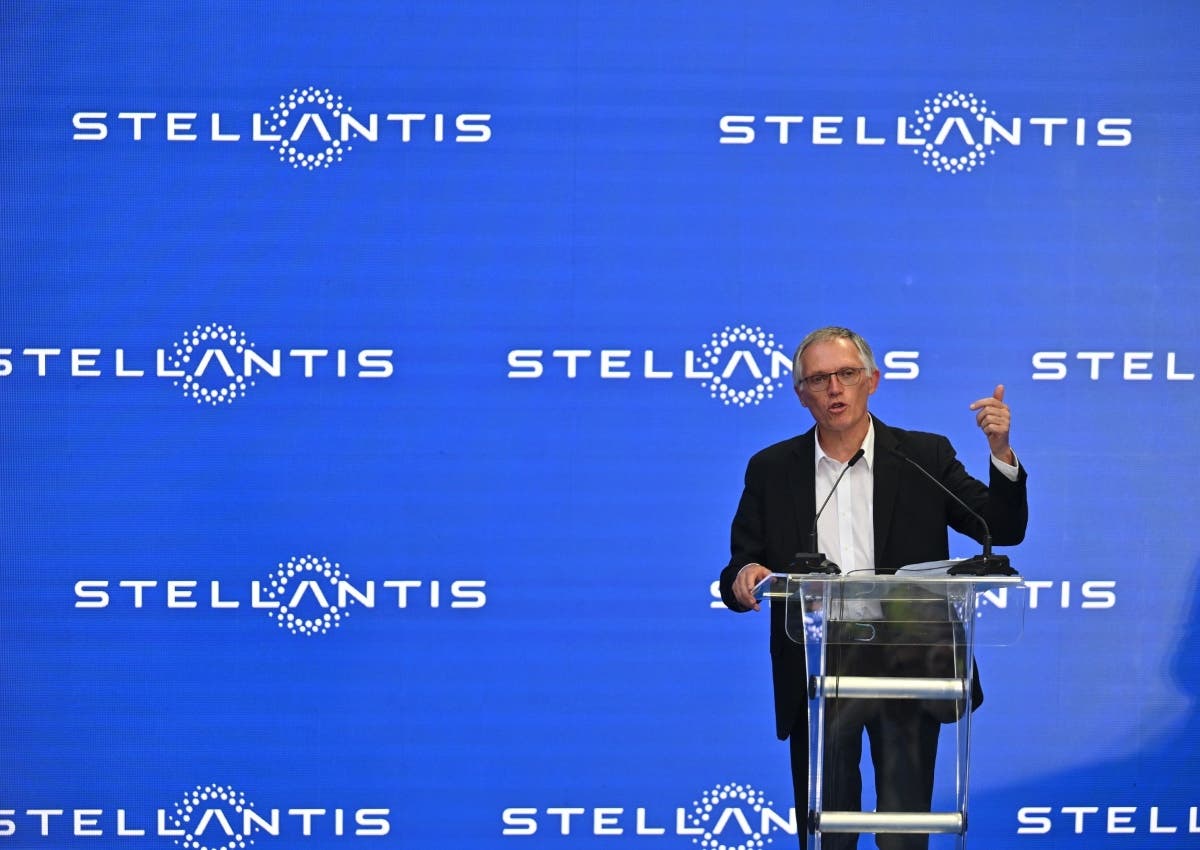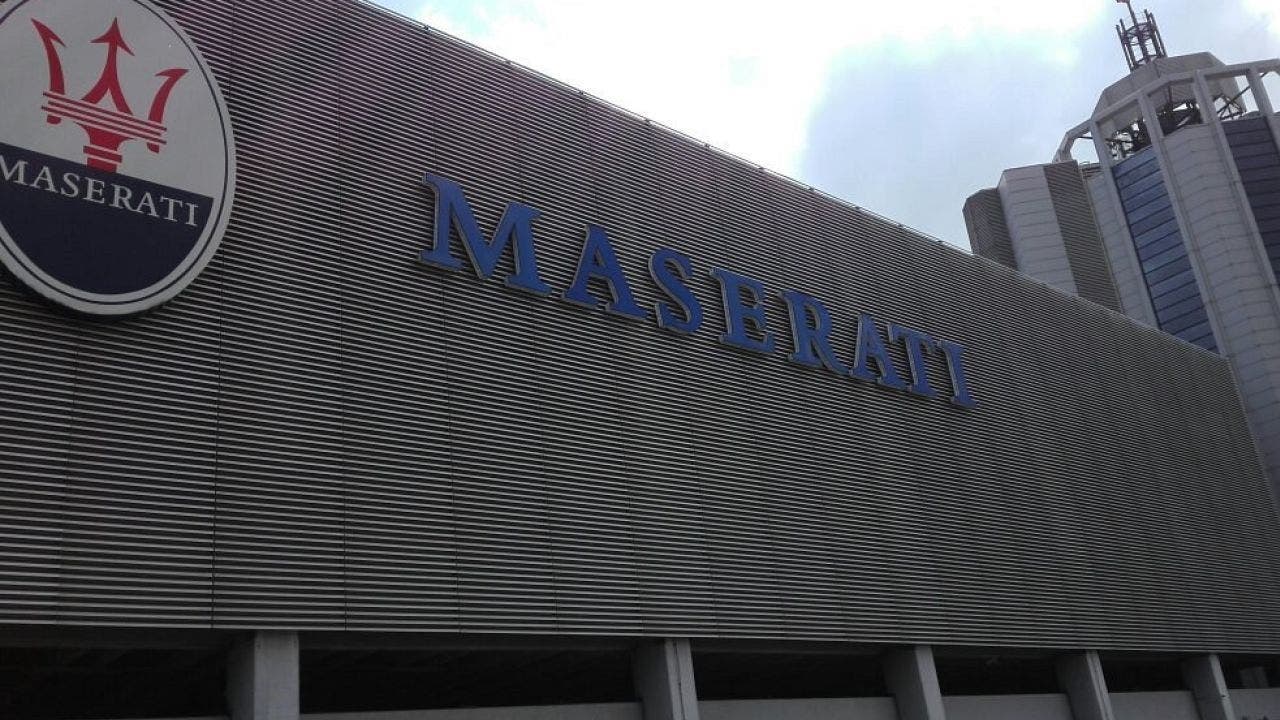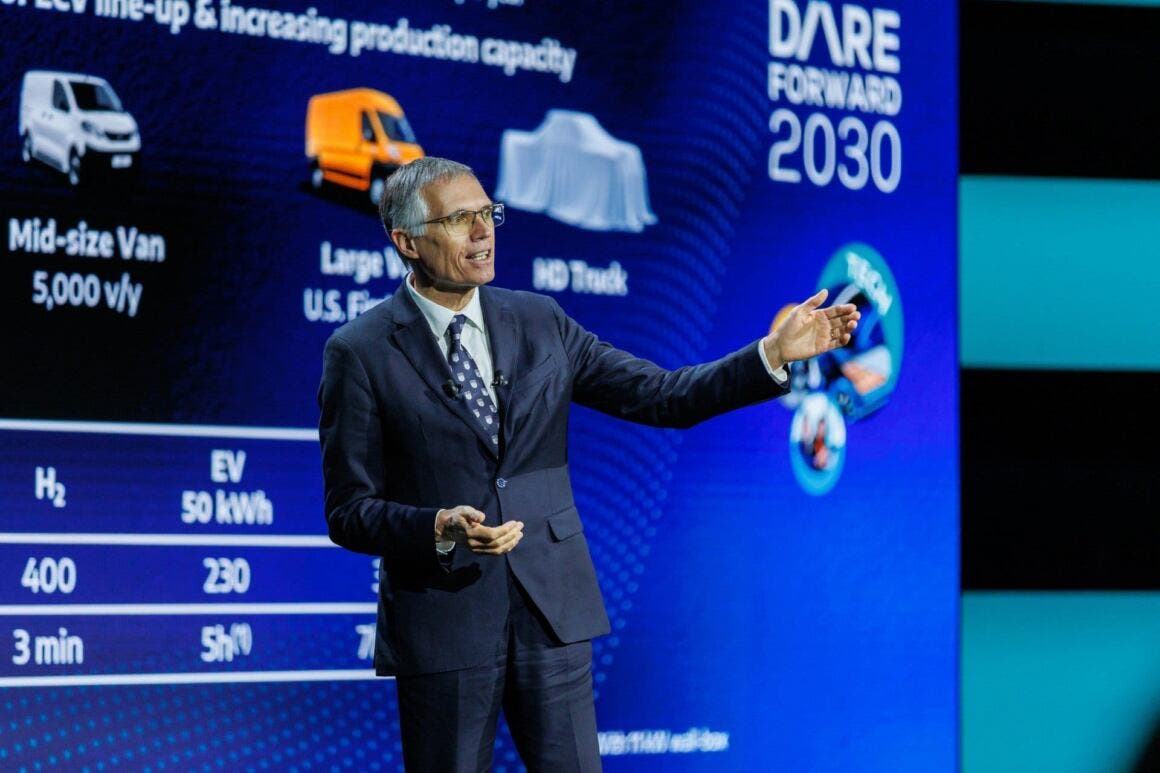Carlos Tavares took advantage of the inauguration of the new global hub for commercial vehicles at the Mirafiori Automotive Park 2030 in Turin, Italy, to discuss very important topics, including the controversy over the possible postponement of CO2 emission targets set for 2025 and the very complex situation facing the automotive industry. On the subject of CO2 emission rules, Stellantis’ number one further reiterated his opposition, emphasizing that it would be unfair to change these rules midway.
The choices made by Stellantis have prevented the group from ending up like Volkswagen

“The targets set by the European Union on emission reduction for the automotive sector by 2025 were imposed from above and were brutal, we have worked hard to comply with the regulation and we respect it. The framework within which we must compete has been set and we are competing,” Tavares stated. Stellantis is working hard to be ready, and Tavares once again adds that the rules imposed by the EU have been known for years. Changing the rules at the last moment would not be fair.
The CEO of Stellantis then spoke about the delicate moment the automotive sector is experiencing and explained why his company had to make choices considered unpopular. Tavares highlighted that they were harshly criticized for this, but they acted this way to prevent Stellantis from ending up like Volkswagen. “It depends on many things, on consumers, on how quickly we will be able to reduce costs, and on the willingness of European countries to support consumers in purchasing electric cars. We have made many unpopular decisions to avoid Volkswagen’s situation that have not been well understood, perhaps because sometimes we haven’t explained them well.”
Stellantis is therefore working to avoid finding itself in the situation the German automotive group is in, dealing with the definition of a program that could lead to the closure of some plants in Germany and the layoff of thousands of employees. “We are working hard to avoid the situation Volkswagen is in now. The future will tell if we have been able to avoid problems or not, it’s too early now,” Tavares added.
The Portuguese manager spoke again about the issue of economic accessibility of BEVs, highlighting that consumers want to buy electric at the price of internal combustion, but there is no business model that supports this. He then added that companies that have tried to sell electric vehicles at the price of internal combustion ones have ended up in trouble.
Stellantis and the future of Maserati

There was also space to talk about the future of Maserati and the Stellantis Mirafiori plant, where the Fiat 500e is also produced. Regarding the Trident brand, which in recent months seemed “for sale,” Tavares says that they will continue to produce the GranTurismo and GranCabrio models at Mirafiori. “We have made significant improvements in terms of quality across the entire brand. We have brought the right technology and now we also have the Folgore models, pure BEVs. We still have work to do on marketing because what I see is that we have a cost structure that should allow us to guarantee the sustainability of Maserati. I don’t think we’ve done enough to position Maserati as a true luxury brand,” stated the Stellantis CEO.
